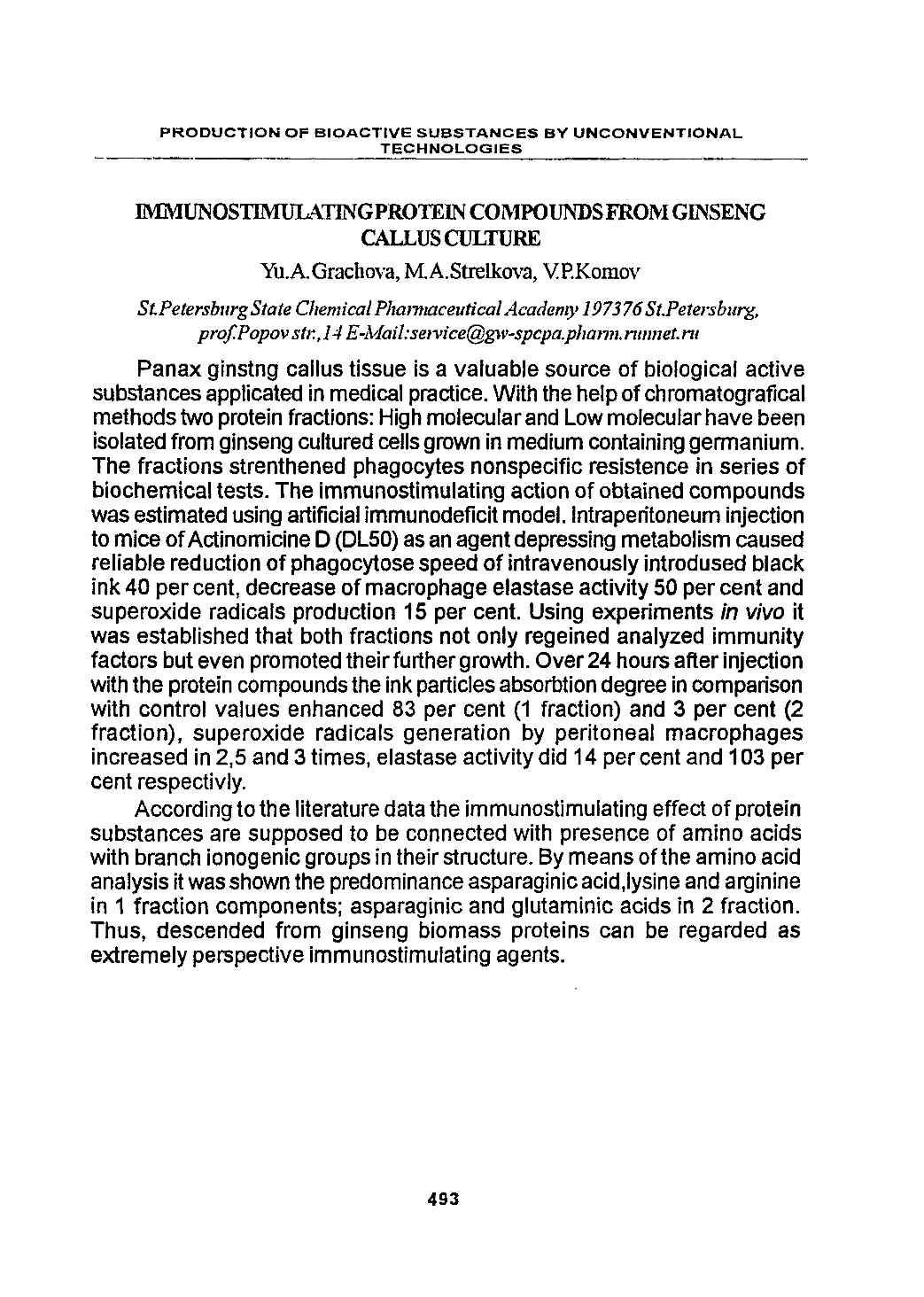

P R O D U C T IO N OF B IO A C T IV E S U B S TA N C E S BY U N C O N V E N T IO N A L
T E C H N O LO G IE S
IM M U N O S T IMULAITNG PROTEIN COMPOUNDS FROM GINSENG
CALLUS CULTURE
Yu.A.Grachova,M .A.Strelkova, V.P.Komov
S t.PetersburgState Chemical Pharmaceutical Academy 197376S t.Petersburg,
prof.Popov str., 14 E-Mail
:service@gw-spcpa.pharm.
runnet.ruPanax ginstng callus tissue is a valuable source of biological active
substances applicated in medical practice. With the help of chromatografical
methods two protein fractions: High molecular and Low molecular have been
isolated from ginseng cultured cells grown in medium containing germanium.
The fractions strenthened phagocytes nonspecific resistence in series o f
biochemical tests. The immunostimulating action of obtained compounds
was estimated using artificial immunodeficit model. Intraperitoneum injection
to mice of Actinomicine D (DL50) as an agent depressing metabolism caused
reliable reduction of phagocytose speed of intravenously introdused black
ink 40 per cent, decrease of macrophage elastase activity 50 per cent and
superoxide radicals production 15 per cent. Using experiments
in vivo
it
was established that both fractions not only regeined analyzed immunity
factors but even promoted their further growth. Over 24 hours after injection
with the protein compounds the ink particles absorbtion degree in comparison
with control values enhanced 83 per cent (1 fraction) and 3 per cent (2
fraction), superoxide radicals generation by peritoneal macrophages
increased in 2,5 and 3 times, elastase activity did 14 per cent and 103 per
cent respectivly.
According to the literature data the immunostimulating effect of protein
substances are supposed to be connected with presence of amino acids
with branch ionogenic groups in their structure. By means of the amino acid
analysis it was shown the predominance asparaginic acid,lysine and arginine
in 1 fraction components; asparaginic and glutaminic acids in 2 fraction.
Thus, descended from ginseng biomass proteins can be regarded as
extremely perspective immunostimulating agents.
4 9 3
Научная электронная библиотека ЦНСХБ









